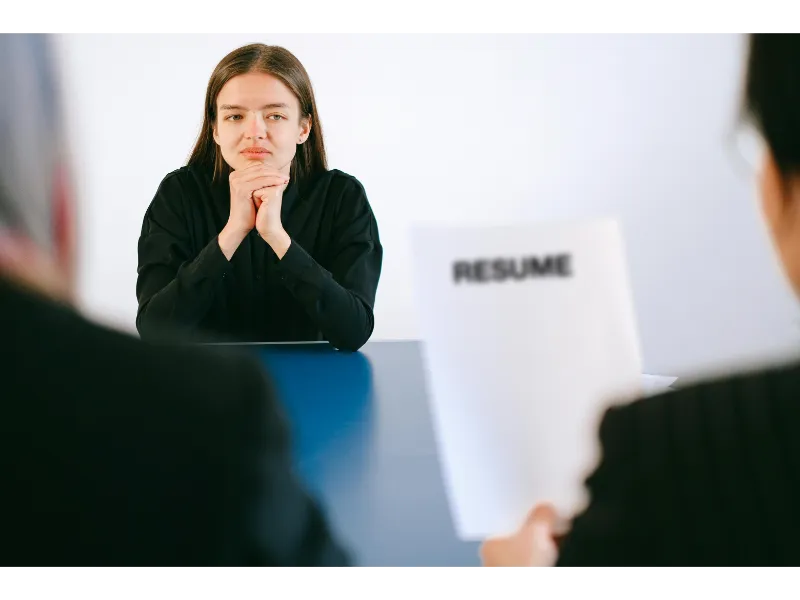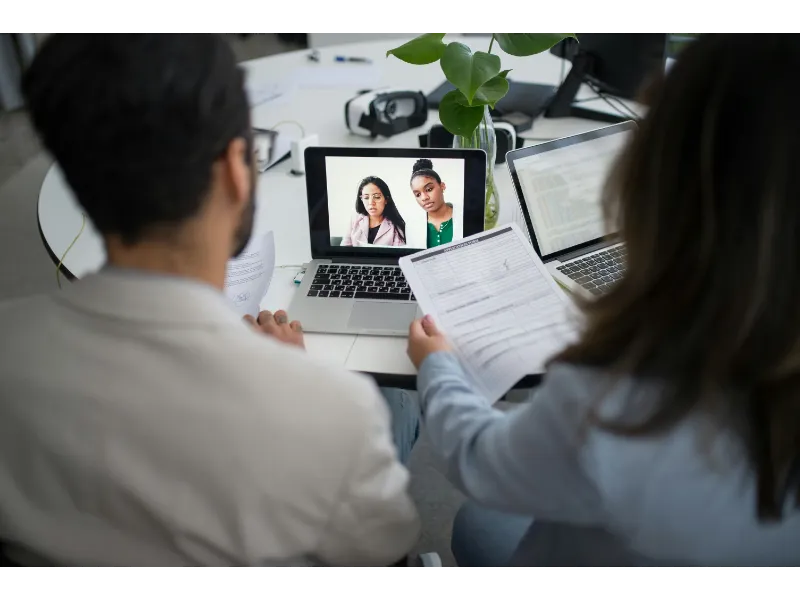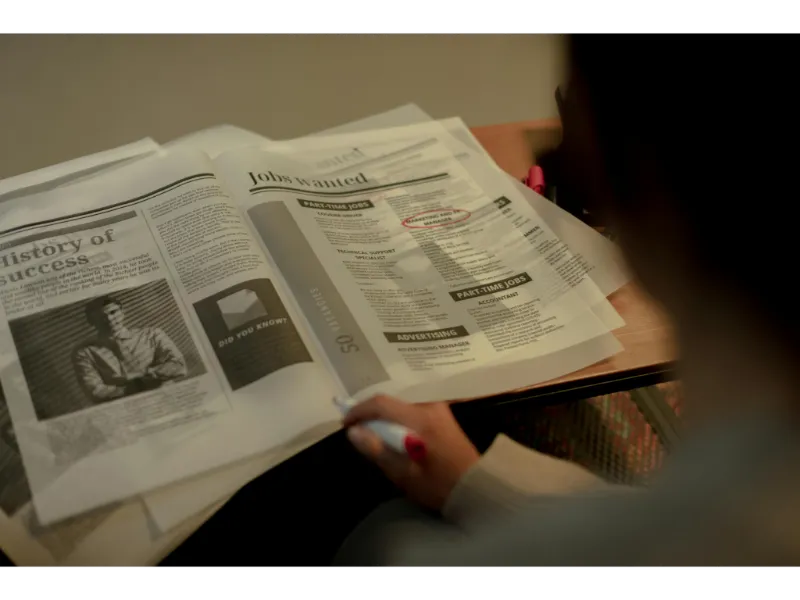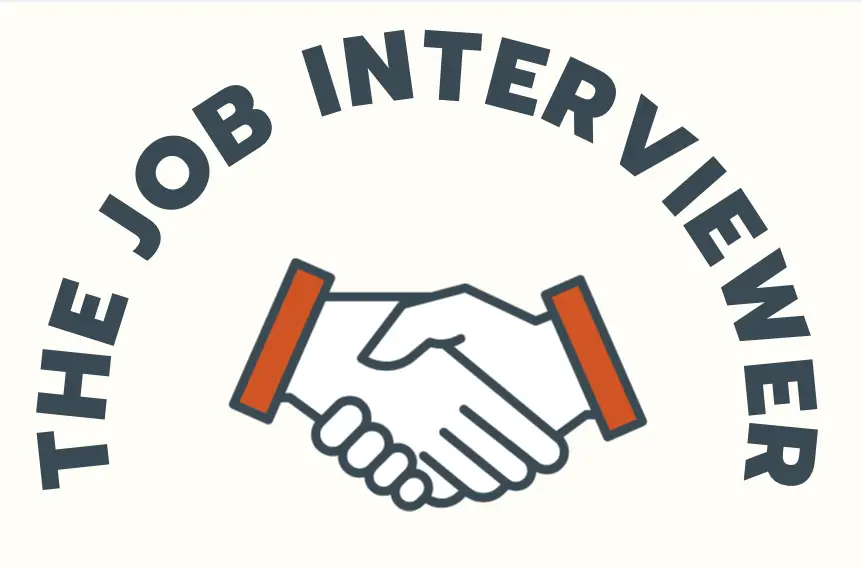
Job Interview Advice
Our approach to job interview preparation, some tips and advice.
Practice Makes Perfect
We firmly believe that the best way to prepare for a job interview is practice.
Our rates are competitively priced so that you can practice your answers many times.
A job interview can feel like a performance, and like any performance you need to rehearse.
You can feel much more confident and relaxed when you have as many answers as possible well prepared and practiced.
Common Sense Approach
We like to think that there is an element of common sense in our approach and we hope that our candidates agree with this.
Preparation is key. If you are not prepared for the job interview, how do you expect to get the job?
If you have to think about answers to basic questions, then you have probably already failed.
Naturally the interviewer will think, “Well if they haven’t prepared answers for some basic questions, then I don’t think they’re going to prepare before meeting a customer, giving a presentation, or starting a project.”
At the very minimum you should have all the common questions and approximately six or seven competency based interview questions (more on those below) prepared.
https://www.themuse.com/advice/interview-questions-and-answers
You should also hopefully be able to answer anything about your current position and previous positions. Of course memories can fade with time, but you should know your current position inside out.

An example
I have friend who was an interviewer for a well-known national body. One of the questions they asked every candidate was “tell us what you know about our organisation”.
Surprisingly, or perhaps unsurprisingly, many candidates knew almost nothing about it.
That is “instant death” in a job interview. To borrow soccer terminology, this is a howler. An answer so bad that you will not get the job because of it. By practicing with an experienced job interviewer you will eliminate such “instant death” traps or pitfalls.
Job interviews can happen very suddenly
I have had many candidates be get contacted by a company or recruiter and have to do a phone interview a few hours later.
This means if you are only starting your preparation for your answers to general questions now, then you don’t have much time to prepare for that specific role and company.

Work alongside your recruiter
Most jobs, but not all, are done through a recruiter now rather than by HR staff at the company. Your recruiter will be a valuable source of information. Like any service providers in life, there are good recruiters and bad recruiters.
Hopefully you have a good one. A good recruiter will prepare you as much as their time allows. Naturally they are not your own personal job coach, they will probably have multiple vacancies, multiple clients, multiple candidates at any one time. But some of them do spend a lot of time preparing candidates for a job interview. This could be a full mock interview, but at the very least they should provide you with a lot of valuable information.
This information could be a list of question you may/will get asked, likes/dislikes this particular company or interviewer has, areas to focus on, dos and don’ts etc.
Many genuinely care about candidates, they want to get to know their candidates, even though it is the company that is their client. They want to see you succeed and will only put you forward for jobs that will suit you.
Writing a CV and Automated Tracking Systems (ATS)
There seems to be a big move towards showing your achievements on your CV, that is what what you yourself achieved, rather than just a list of duties and responsibilities as in the past.
For example, “reduced average customer turnaround time by 30%”, or “increased conversions by 42%”, or “reduced down time by 28%” etc
This is at least partially due to Automated Tracking System software that a lot of companies have. These systems use AI to filter candidates by scanning their CV.
So you need to get past this screening stage before your CV is even read by a human.
There are a couple of approaches you can take to this.
One that I am not very comfortable with, is that you “pad out” your CV with percentage increases, figures etc to get past the software, even if you can’t prove or explain these figures.
Perhaps some employers would give you credit for showing initiative to achieve a goal of getting past the software.
However, if I see that you reduced something by 80%, I will ask “how did you measure that?”, especially if it is something that seems difficult to measure.
If you can’t answer that then I believe that looks very badly on you.
A great resource for CV writing is engineering resumes on Reddit. Although obviously focused on engineering and IT roles there are lessons to be learned by everyone.
In the era of globalization that we live in now, all CVs are starting to look and sound the same.
This is especially true when you have AI tools such as ChatGPT that is a huge time saver to help you write a good CV.
I would claim that I was pretty good at writing CVs, and cover letters in the past. I’ve done many for friends, flatmates, colleagues and acquaintances. It is one of the reasons I started this site, however my skills have somewhat been nullified by ChatGPT.
A drawback now is that ChatGPT has become so common that you can spot text written by it immediately. Adding the human touch to text can be a good idea.

Tell me about yourself....
The most difficult question of all. It is not “Tell me your entire life story in 20 uninterrupted minutes”!
There are some important things to keep in mind:
- A nice short answer of roughly 60 to 90 seconds
- There is no right answer, there is no wrong answer. You can only give the answer that you are comfortable with
- Your answer will change slightly for each job or each company
- Prepare a generic answer, or pick a job vacancy you want and prepare for that
- Use their job description for your answers, they are telling you what they want to hear!
Don’ts:
- Talk for too long.
- Try and summarise your entire working life in one answer
Soft skills, people skills, communication are important
If the interview is in person, pay attention to what is going on around you.
For example, for “Tell me about yourself…”you might have very informal, chatty, friendly answers prepared.
You arrive for your interview and you see that it’s a very serious environment, people are not laughing and joking. In that case you might just focus on your experience and CV rather than mention your hobbies. Of course make sure you hit all the relevant points from their job description.
An example like this might be in large multinational companies, however of course it could happen in a 5-employee company where the owner is interviewing you.
You need to assess your surroundings, use your common sense and social skills to size up your interviewer.
The contrary to this might be the owner of this 5-employee company.
In that case you might be working very closely with that person, and I’m sure that person wants to work with a person they have a good rapport with. So friendliness, likeability, and personality might be more important.
Another Point
Another point to consider is that the interviewer has your CV, you hope that they have read it and are familiar with you. Do you want to just repeat what is on your CV?
In some cases this can be a good thing, it can refresh the memory of your interviewer. But I think, why repeat all that information again? This is your chance to show who you are as a person and make them remember you. Decisions can be made very quickly about whether you like someone one or not and similarly if you would be a good fit or not in their organisation.
You can use this question to talk about something that might not be on your CV.

Use the Job Description!
They are telling you what they want to hear! Use it.
Ideally you will have solid answers prepared for the most common questions. Then you can spend your time tweaking them by using terms and keywords in their job description.
"Tell me about a time where..." - Competency Based Interview Questions
These are increasingly common, the Muse Link above has the 6 most common questions, which everyone should prepare for.
This excellent link has a further 150 or so and talks more about the STAR technique of answering them. That is Situation, Task, Action, Result.
You don’t need to prepare 150 answers! In general 5 or 6 situation can be used to answer most questions. Also you can focus on the areas that are most relevant to you e.g. sales, customer service.
But some companies will have their own specific questions that they ask, online research or ideally your recruiter will have this essential information.
Again you can prepare general answers and then tweak them slightly or sprinkle in some keywords based on the job description.
Sounds good? Contact Us or Book Now!
Give yourself the best chance to succeed—contact us to learn more or book your session now by using the form below!
